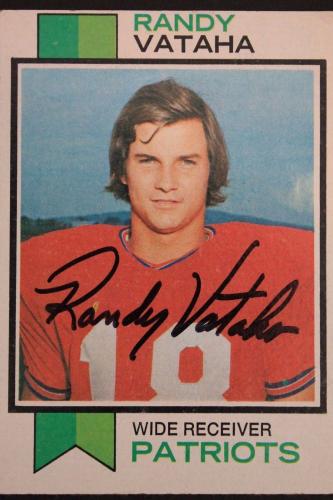Sports Betting Bankroll Management – Multiple Sports

Last week I wrote an article, geared towards the beginning sports bettor, about “What Winning Looked Like” in sports betting.
In the comments section I received a comment and I answered it in the following manner:
The next day I received an email asking me to expand on my comment about “wagering smaller stakes” on NBA and MLB games.
Specifically, I was asked “are you saying that you wager different unit sizes of your bankroll on different sports?”
I ABSOLUTELY DO!
BANKROLL MANAGEMENT BASICS
One of the most important aspects — some might even say the most important aspect — of sports betting is bankroll, or money management.
Whether you’re looking to maximize your entertainment or your bottom line, bankroll management is essential.
If you’re just getting started in sports betting, it is important that you learn the basics of how to manage your sports betting funds.
Do a Google search on “Sports Betting Bankroll Management” and you will get thousands (and thousands) of articles on the subject.
The thing is, and I have stated this many times on the site in articles and comments, there is no one size fits all bankroll management technique.
You should definitely follow a few certain principles, but how someone manages their bankroll differs from one person to the next.
What are your sports betting objectives? Is it to have some fun and hopefully turn a small profit doing so? Do you view it as more of a long-term “Investment?” Or do you consider yourself a “professional” sports handicapper and this is how you make your living?
What is your “True” Bankroll? Will you be adding funds to your account(s) if you hit a losing streak or is the amount you have in your account(s) to start the season your “full bankroll?”
I ask these questions because different answers can produce different bankroll management philosophies.
For example, if you are a recreational sports bettor with a $3,000 bankroll but could add more money if you suffered heavy losses, it may be okay to risk a larger percentage of your bankroll on a single bet, say 3 or 4 percent.
However, I personally am not in a position to add more funds to my sports betting bankroll, so as most of you already know, I am extremely conservative with my bet size(s).
MY BANKROLL MANAGEMENT PHILOSOPHY
Since I was specifically asked why I wager different amounts on different sports, I believe I can answer that question by explaining my personal bankroll management philosophy.
First, since nearly all of my income is derived from sports handicapping and/or sports handicapping related activities, my sports betting bankroll is 100% of my capital.
I cannot simply replenish my losses after a protracted losing streak … and as I explained in my “What Winning Looks Like” article, there is a lot of losing involved in sports betting.
So I approach sports betting as a long-term investment, and since 100% of my “capital” is allocated to sports, I need to protect my bankroll at all costs.
And not to sound arrogant or boastful, but my bankroll management has been flawless for the past 10 years.
I wager the same amount — or nearly the same amount – on every game. I say nearly the same amount because as some of you know, on the rare occasion, I’ll sometimes go “crazy” and wager an extra .25 units on a game. LOL!
I typically wager between 1 to 2 percent of my bankroll on a college football game. I say between 1 and 2 percent, but it is almost always the same predetermined amount per game.
For example, if I had a $15,000 bankroll, I would wager $220 per game, or 1.47%. This would be the amount I would wager on nearly every game, with the exceptions being a smaller amount (usually half as much) on a correlated wager (usually wagering a side with a total or vice-versa), or a larger amount – no more than $275 to win $250 (1.83%) — on a game that I felt more confident in than usual.
As my bankroll increases, I will periodically recalculate my wager size(s). Usually — at least for college football – before the start of each season.
BET MORE ON THE SPORTS YOU KNOW WELL
 Back to the original question. Why do I wager different amounts on different sports?
Back to the original question. Why do I wager different amounts on different sports?
My sports handicapping background can mostly be summed up in two words … COLLEGE FOOTBALL.
I love college football. I’ve always loved college football. I can still remember as a little kid growing up in the Bay Area watching Jim Plunkett connecting with Randy Vataha to lead Stanford over Ohio State in the Rose Bowl.
I know more about college football, and I definitely know more about betting college football, than most. I spend nearly the entire off-season reading about college football.
During the college football season I spend the majority of my Saturdays in a sports bar watching dozens of games before I head off to Sun Devil Stadium to watch another game.
And when I am handicapping college football games I know exactly the handful of criteria I am looking for in order to place a +EV wager.
I AM CONFIDENT.
I cannot say that about other sports, especially when it comes to betting on them.
Over the years I have personally handicapped the NFL, MLB and college basketball, with little success. I have also handicapped World Cup and EPL soccer, which for some unknown reason — at least unknown to me — I did really well.
In fact, the second biggest sports wager I’ve ever won was a World Cup futures bet on Italy to win the 2006 tournament.
ENTERTAINMENT VALUE
College football, and to a slightly lesser extent the NFL, I am betting 100% for profit. Those are the two sports I am looking to for a solid return on investment (ROI) and to significantly grow my bankroll.
Don’t get me wrong. I am also looking to make a profit betting college basketball, MLB and the NBA, but since I don’t know anywhere near as much about those sports – and I certainly don’t watch nearly as much of those sports as I do college football – I “mentally” view them from a recreational betting perspective.
If I win, that is fantastic, but if I happen to lose I try and look at it as an “entertainment” fee.
So my betting units are as follows:
College Football ~1.50% of my bankroll per game.
My typical NFL unit is ~66% of my college football unit.
My college basketball unit is ~40% of my college football unit, and my NBA & MLB unit is ~33% of my college football unit.
Keep in mind, that there are also far more CBB, NBA & MLB games available to wager. So whereas I might bet 5 to 7 college football games in a single week at 1.5% per game, there may be weeks where I am wagering 10-14 MLB games at ,50% per game.
EMOTIONAL MANAGEMENT
Some of you might be asking, “Aren’t you leaving money (profits) on the table?”
After all, Adam has never had a losing season in 5 years of college basketball (he did go 77-70 during the 2017-18 season), and at the moment (April 2019), NBA is in the black and CJ (Razor) is crushing baseball.
So the answer to that question would be, YES!
However, I cannot begin to tell you how much value there is in NOT BEING STRESSED.
During the college football season, even though I may only be wagering ~1.5% of my bankroll per game (which is still a lot of money to me), I become emotionally involved in the outcome.
First of all, I am usually watching the game, so I am invested in every play.
Second, because I have put so much personal time and effort into the selections – and I know a lot of you have entrusted me by following the selections – it just adds an extra layer of pressure.
When I have a losing week in college football – despite my experience, my excellent bankroll management, and my ability to accept losing as part of the process – I still get downright depressed for a few hours.
Heck, as many of you know, I’m sometimes still venting on Sunday morning.
But when Adam went 0-4 on the last Saturday of February in college hoops it felt like nothing more than a minor blip to me. I didn’t watch a single game. I just moved on.
It felt more like a bad day in the market – it had little to no affect on my bankroll — and tomorrow was a new beginning.
SUMMARY
Since I wrote this article with the new sports bettor in mind, I’ll summarize it from that perspective.
First, determine the size of your sports betting bankroll. Is it a fixed amount or are you in a position whereby you could add more funds if needed?
Second, are you approaching sports betting purely from a recreational standpoint? In other words, is this money you can afford to lose? I know no one ever wants to lose money, but it happens, and if you were to lose would it impact your life or lifestyle in any way?
If you are in a position to add funds to your bankroll and you are approaching sports betting from a recreational perspective, you could probably adopt a larger unit size betting strategy (3 or 4 percent?).
In essence, you have more bankroll on the side and can be a bit riskier when it comes to unit size(s) wagered.
However, keep in mind that generally speaking, most beginning sports bettors go wrong by risking too much of their bankroll on individual bets.
If on the other hand you are approaching sports betting as a long-term investment, I would recommend a smaller unit size (1 to 2 percent) per wager (flat betting), with only slight variations.
Smaller bet sizes are more prudent and will allow you to stick to your approach and stay disciplined in every facet of your bankroll management.










Pez, I’m new to baseball wagering. I’m used to football wagering where the price is usually -110. For simplicity sake, let’s assume 1 unit = $100, so a 1 unit football bet is typically risking $110 to win $100.
When Razor says he’s betting one unit on a baseball game, if it’s a favorite priced at -150, is he risking $150 or $100…and when it’s a dog priced at +150, is he risking $100 or $66? I’m trying to understand how bettors of ML sports typically structure their bets.
Travis, if the favorite was -150, you’d wager $150 to win $100 (your 1 unit) … so if the bet lost, you would actually lose 1.5 units. On the other hand if he wagered a dog +150, you’d be wagering $100 (your 1 unit), but in this case, if the wager won, you’d win 1.5 units. The three things he has been doing very well this season (IMO) is he rarely wagers anything more than -120 (I believe -130 has been his biggest favorite so far this season), he has hit several +125’s & +130’s and he has been staying very quality oriented (only wagering 1-2 games per day). I personally do not wager his suggested unit sizes … I just keep everything 1 (baseball) unit..
This is why I love the site and have been following you guys since the RX. really cool to have articles like this on here.
Thanks Lonnie. I’m glad to see that even some of the more experienced sports bettors like yourself find a few nuggets in these articles. 118 days until college football starts 🙂
Pez, what was the biggest wager you ever won? You don’t have to give the dollar amount, I’m just curious what it was. A college football game?
Yes Terry it was a college football game … and it was actually two bets, but I always count them as a single bet. It was the 2006 Chick-fil-A Bowl (I always thought it was the Sugar Bowl) between Georgia and Va Tech. I took Georgia -2 … it was my largest wager of the season (back in the day before my money management improved. HA). The Hokies absolutely crushed UGA in the first half, 21-3. Georgia’s freshman QB, some kid named Matthew Stafford looked like a freshman QB. It was ugly. I thought there was no way Georgia was going to play that poorly in the 2nd half, so I wagered them second half -2 for a full unit (I almost never wager a full unit on 2nd half bets). The second half was one of the biggest beat downs I have ever seen. Georgia destroyed them, 28-3 and it could have been far worse. Stafford looked like the future number 1 player taken in the NFL Draft. It was awesome.